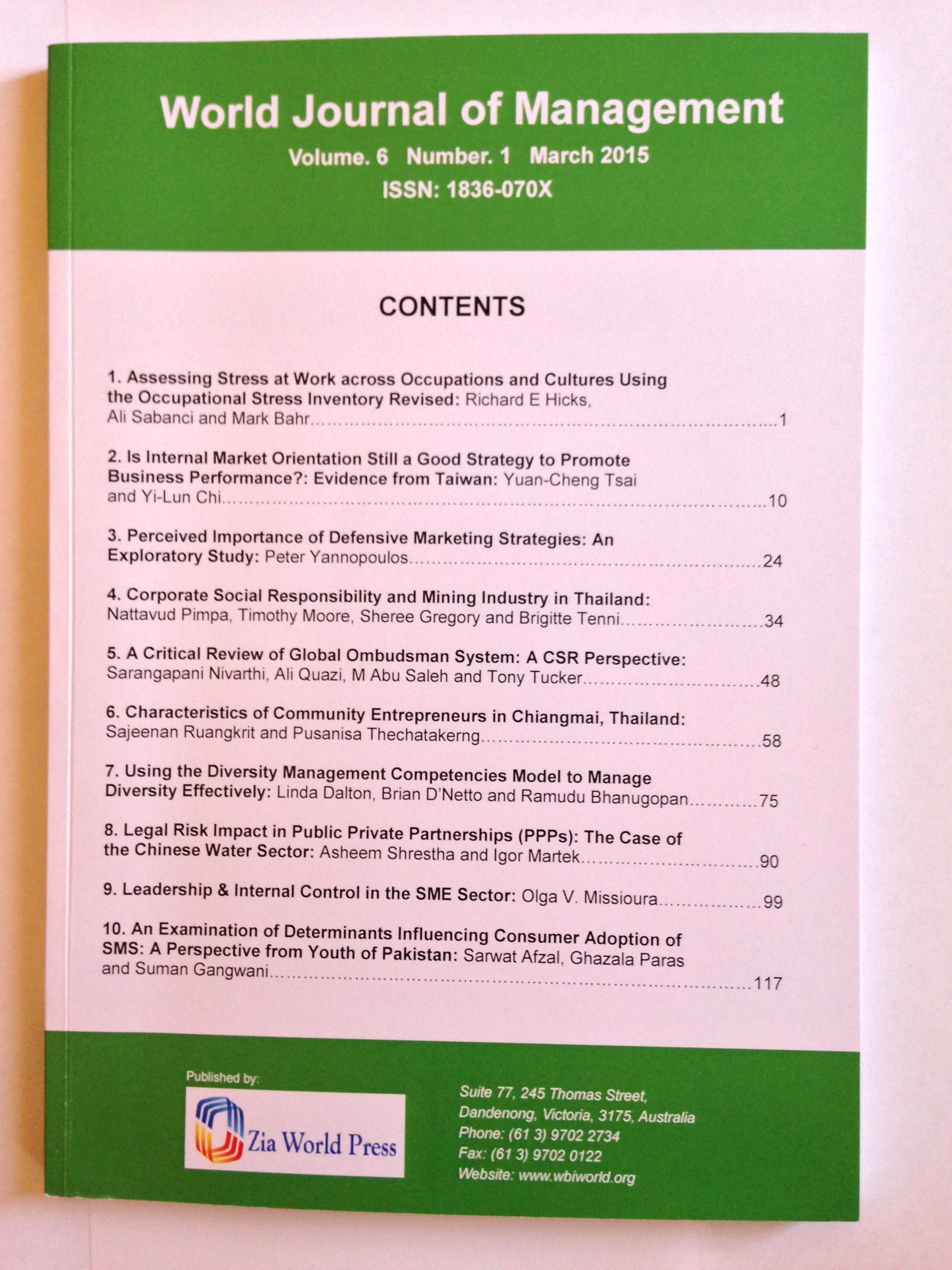Pages
1 – 17
Author: Wen-Juan Li, Ming-Chang Cheng and Quynh Nhu Tran Pham
As the integrated representation of an individual’s characteristics, capacities and personalities, the competence is the foundation of developing management, especially of human resource management. To get better acquainted with competence, this paper first briefly reviewed the development process and latest status of competency study then systematized and contrasted the definitions of interrelated concepts and finally comprehensively investigated the research achievements made by Chinese scholars. The authors also included the exploration of the influencing factors from both internal and external environments of competency followed by a comparison of competency model constructing methods. The main findings were that it concluded the connotation and present foreign and domestic research of competence for supervising management in enterprises in the light of competence. Generally, the authors fought the unresolved problems of competence and deliberated their development trends prospectively.
Pages
18 – 34
Author: Vittorio D'Amato, Elena Tosca and Francesca Macchi
In this article, the authors analyse the mission statements of 50 top Italian enterprises, which are published on the companies' web sites. The purpose of this study is to analyse, using the Nine Point Scale model given by Fred R. David, the contents of the web site mission statement referring to 50 top Italian operating companies. The findings of the study allow us to confirm that an important topic, as the company mission statement, is often misunderstood and not defined properly, according to the elements of the reference model. The statements are, for most of them, not built in order to give the right support and the useful guidelines for strategic management.
Pages
35 – 45
Author: Nadiah Abd Hamid, Mohamad Ridhuan Mat Dangi, Rose Haslinda Mohd Rusli and Norazah Md Azali
The main aim of this study is to investigate the effectiveness of Goods and Services Tax (GST) education providers between Royal Malaysian Customs Department (RMCD) and tax agents in Malaysia. Both RMCD and tax agents are the key player in disseminating the information about GST in Malaysia. In-depth interview sessions had been conducted with several accounting personnel which addressing their understanding and knowledge about GST and further explore the role of RMCD and tax agent in educating them during the handholding programs. Several interviews with selected firm’s accounts personnel who handle the GST accounting were conducted to ascertain the GST compliance issues faced by the businesses. There are two main practical implications which have been derived from the findings of this study, firstly, the results contribute towards the policy implications and secondly, the implications it brings to the Malaysian businesses. These two practical implications can be analysed from the perspective of both the tax authority and the businesses. The first perspective could contribute to policy changes of the tax authority in term of the enhancement of GST education programs as well as the improvement in the efficiency of their existing roles. From the perspective of businesses, it can bring about changes in organizational behaviour and the improvement on their management of tax matters.

